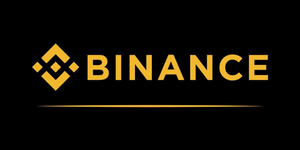Check out our comprehensive cryptocurrency glossary to help you to understand the basics of Bitcoin, blockchain & cryptocurrencies.
A Token is based on existing blockchain platform or protocol and depends on its functioning (unlike independent Coins). Today, numerous tokens exist, a large majority of which are based on the Ethereum blockchain (ERC-20 standard) or the Binance Smart Chain (BEP-20 standard). See also: Coin, Cryptocurrency, Altcoin.
A Coin is an independent Cryptocurrency such as Bitcoin or Litecoin. Unlike Tokens, Coins are based on their own blockchains and can therefore operate independently of other Coins. Also a single unit of a cryptocurrency or the well-known Bitcoin forks such as Bitcoin Cash or Bitcoin Gold are referred to as Coins. See also: Token,…
The term Peer-to-Peer (P2P) originally stands for communication among equals in the context of computer networks (computer-to-computer communication). In the cryptocurrency context, peer-to-peer can be understood as the basic principle of transactions. Based on Blockchain technology, transactions can be carried out between two equal partners without the need for a central intermediary such as a bank. See…
In the context of cryptocurrencies, individuals or entities with particularly large crypto holdings are referred to as a Whale. Due to this large amount of certain cryptocurrencies, whales occupy a strategic position in the market and can influence price developments. Bitcoin founder Satoshi Nakamoto, whose identity remains unknown to this day, is considered one of…
A cryptocurrency Wallet is used to manage, sent and receive cryptocurrency holdings. There are different types of Wallets with different levels of security such as desktop wallets, mobile wallets, hardware wallets or paper wallets. Wallets do not actually store cryptocurrencies per se, but the private keys to access the digital assets on the blockchain. For this…
Two-factor authentication (2FA) is a widely used security mechanism that requires two separate, distinct forms of identification to access secured data. The first element is usually a secure password set by the user and the second element regularly involves a pin code sent to the user’s smartphone or e-Mail. There are also 2FA security mechanisms…
The term Shitcoin is used to describe cryptocurrencies that are usually traded with little to no value and have no clear, identifiable purpose for their existence. Often, the price of a Shitcoin is based solely on speculation, as most projects are not created in good faith, but solely to enrich their creators. The general disinterest of…
A Shill(er), often referred to as Shilling, describes a person who aggressively promotes an existing cryptocurrency or a new cryptocurrency project for personal benefit. As a result, interest in the advertised cryptocurrency grows, other investors buy it, and the value of the coin or token rises. This gives Shiller the opportunity to sell his own…
Bitcoin is the very first cryptocurrency and was founded by an anonymous person or group of individuals, named Satoshi Nakamoto. Satoshi Nakamoto published the Bitcoin whitepaper titled “Bitcoin: A Peer-to-Peer Electronic Cash System” in late 2008 and the first Bitcoin version (Bitcoin Core) in January 2009. The pseudonym Satoshi Nakamoto has been repeatedly associated with…
Satoshi (SAT) is the smallest unit or possible denomination of Bitcoin. One Satoshi is equivalent to a value of 0.00000001 BTC. It is called Satoshi in reference to Bitcoin founder Satoshi Nakamoto. Bitcoin Denominations: Denomination Abbreviation Full Name Bitcoin Value Satoshi SAT Satoshi 0.00000001 BTC Microbit µBTC (uBTC) Microbitcoin or Bit 0.000001 BTC Millibit mBTC…









